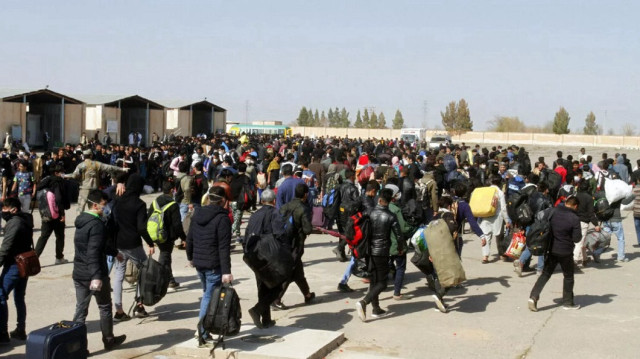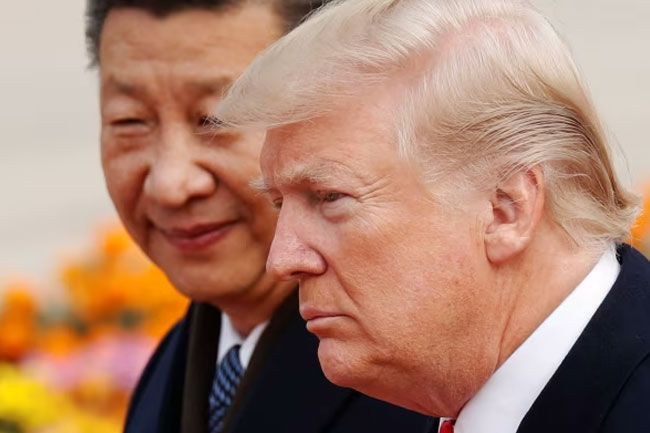Inside the Complex Web of Iran-US Nuclear Talks
Explore the intricate web of diplomacy and tension as Iran and the US navigate nuclear negotiations amidst geopolitical power plays and complex international relationships.
Published April 18, 2025 - 00:04am

Image recovered from arabnews.com
In the realm of international diplomacy, the nuclear negotiations between Iran and the United States represent a critical juncture in global affairs. As tensions ferment, this issue encompasses a multilayered tapestry of geopolitical, economic, and military considerations that echo far beyond the Middle Eastern borders.
Iran's nuclear ambitions have long been a focal point of international scrutiny. Concerns over potentially expanding its capabilities toward acquiring nuclear weaponry continue to provoke anxiety among global powers. The International Atomic Energy Agency (IAEA) consistently indicates that Iran is coming increasingly closer to assembling a nuclear bomb. Despite Iranian declarations that its nuclear pursuits are purely civilian, many Western nations, led by the United States, remain skeptical of Tehran's intentions.
Contributing to the complexity is the significant role played by Russia, a staunch Iranian ally and a pivotal Security Council member. Russia's influence looms large over these negotiations, given its advantageous position to veto UN decisions and leverage arms deals with Tehran, even as it maneuvers through its own geopolitical challenges, such as the ongoing conflict in Ukraine.
The United States, however, stands firm in its demands, urging Iran to dismantle elements crucial to nuclear weapon development and insisting on transparency. The discourse has been tense, having reached a deadlock since former President Trump's withdrawal from the 2015 Joint Comprehensive Plan of Action (JCPOA). The decision to pull out of the agreement has had serious repercussions, escalating regional tensions and prompting further Iranian advances in nuclear capability. Current President Biden's administration is now tasked with engaging Tehran in discussions that could reinstate some form of nuclear compromise, although regional stability remains precarious.
Adding layers to these diplomatic entanglements are the parallel power struggles reflected within the state's domestic politics. In Iran, leaders must balance the demands for economic relief against nationalistic aspirations. Supreme Leader Ali Khamenei maintains a powerful grip on the country's policy direction, steering negotiations to align with national sovereignty and technological advancement narratives. Conversely, the political factions within the United States exhibit polarized stances. The Biden administration's diplomatic overtures are often counterbalanced by significant opposition within US political circles, complicating efforts to reach a swift consensus.
Israel's role in the dynamic is pronounced, reflecting concerns about existential threats to its security. Recent statements from Israeli Prime Minister Benjamin Netanyahu underscore the country's commitment to preventing Iran from developing nuclear weapons, accentuating this stance with prior denied proposals for military intervention. These public and covert actions are seen as means to stymie Iran's nuclear capabilities rather than engage cooperatively in peaceful negotiations.
Consequential economic considerations loom large over these diplomatic efforts, with sanctions and counter-sanctions defining much of the interaction between Tehran and Washington. Iran's economy, heavily reliant on oil, has been grievously impacted by sanctions. The Iranian economy shrank, and a significant depreciation of the national currency led to pervasive socio-economic strife. Consequently, Iran seeks relief and an opportunity to revitalize its economic status both domestically and internationally.
In the broader global context, the Iran-US talks mirror the shifting balance of power. China and Russia's involvement in Middle Eastern affairs, through their respective energy and security initiatives, highlights the multifaceted nature of these discussions. Their participation in the negotiations subtly challenges US dominance and introduces a new set of complexities to the diplomatic landscape.
Ultimately, this protracted engagement in nuclear negotiations underscores the intricate and interdependent nature of modern diplomacy. Each interaction, concession, or stalemate reflect broader concerns of national security, regional dominance, and economic survival. As the discussions advance, the outcome remains indeterminate, encapsulating both the potential for resolution and the perils of escalation in one of the world's most volatile regions.







